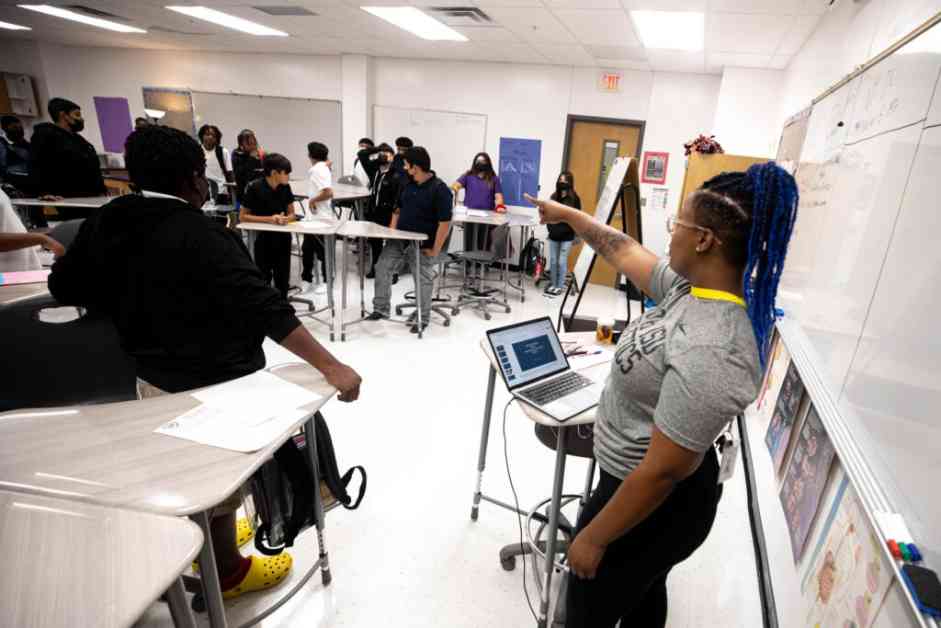Senator Brandon Creighton of Texas has recently introduced Senate Bill 26, a comprehensive proposal aimed at increasing teacher salaries in the state, with a particular focus on retaining experienced educators. This bill, totaling nearly $5 billion, comes on the heels of Governor Greg Abbott’s declaration of raising teacher pay as one of seven critical issues for the 89th Legislature. Creighton emphasized the importance of addressing the pay discrepancy between new and experienced teachers, noting that while Texas ranks 15th in the nation for starting teacher salaries, it falls significantly behind, around 40th place, in compensating those with more experience.
The average salary for a Texas teacher during the 2023-24 school year was reported to be $62,474, lagging thousands of dollars behind the national average. To bridge this gap, SB 26 proposes the creation of a teacher retention allotment, which would provide raises based on school district size and years of experience. Creighton highlighted the significance of retaining experienced teachers beyond the 60-month mark, citing a strong likelihood of them remaining in the profession.
Teacher Retention Allotment: A Step Towards Equity
According to the 2024 Texas Teacher Poll conducted by the Charles Butt Foundation, a staggering 78% of teachers have contemplated leaving the classroom, a 20-point increase from just four years ago. This poll also revealed that 77% of teachers feel they are not being paid a living wage. In response, SB 26 outlines specific pay increases for teachers in different experience brackets within school districts of varying sizes. For instance, teachers with three to five years of experience in smaller districts would receive a $5,000 raise, while those with over five years of experience could see a $10,000 increase. In larger districts, these raises are adjusted accordingly.
Pamela McPeters, from the Texas Classroom Teachers Association, expressed satisfaction with the proposed raises, particularly for experienced teachers. She believes that the salary hike, ranging from $5,500 to $10,000, will help alleviate the financial strain caused by inflation in recent years. However, some educators, like Superintendent Brandon Enos of Cushing ISD, advocate for a different approach. Enos, who also chairs the legislative committee for the Texas Rural Education Association, suggests increasing the minimum state spending per student, known as the basic allotment, to provide districts with more flexibility in managing their finances.
Challenges and Considerations Ahead
While SB 26 aims to address the issue of teacher compensation, concerns have been raised about the equity and scope of the proposed allotment. Chandra Kring Villanueva, the director of policy and advocacy at Every Texan, a progressive organization, pointed out that offering across-the-board raises may not account for the diverse needs and challenges faced by individual school districts. She also highlighted the exclusion of non-teaching staff, such as counselors, librarians, and janitors, from the proposed raises.
In response to these concerns, Senator Creighton emphasized the Senate’s focus on creating specific funding streams for teacher pay raises and other educational priorities like special education. He anticipates that the Texas House will likely suggest an increase to the basic allotment to complement these efforts. Additionally, SB 26 includes provisions to expand a merit pay program for top-performing teachers and to provide free pre-kindergarten for teachers’ children, aiming to address some of the broader challenges faced by educators.
As the legislative process moves forward, stakeholders from various sectors continue to engage in discussions on the best strategies to support teachers and improve the overall education system in Texas. While differing perspectives and priorities exist, the ultimate goal remains the same – to ensure that teachers are fairly compensated for their invaluable contributions to the development and success of future generations. The upcoming hearing on SB 26 will provide a platform for further dialogue and decision-making on this critical issue.















